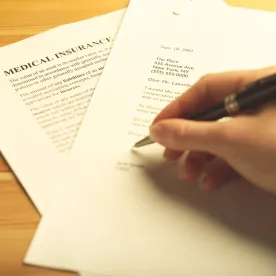A federal court in Louisiana recently interpreted the coverage under a Pollution Legal Liability (PLL) policy and found that certain costs required by a Consent Decree under the Clean Air Act constituted “remediation costs” covered by the PLL policy. Louisiana Generating LLC v. The Illinois Union Insurance Company, et al. Case 3:10-cv-0056. On Aug. 5, 2015, the United States District Court for the Middle District of Louisiana granted Louisiana Generating LLC’s motion for summary judgment against its insurer, Illinois Union Insurance Company, finding in favor of coverage for the installation of pollution controls and performance of mitigation projects required under the Consent Decree.
The Consent Decree resolved a prior suit in which EPA and the Louisiana Department of Environmental Quality sued Louisiana Generating LLC for allegedly undertaking certain modifications of the power plant without a Prevention of Significant Deterioration permit as required by the Clean Air Act. Relevant to the coverage case, the company asserted that three particular expenses required under the Consent Decree were covered by the company’s PLL policy: (1) the costs of installing selective non-catalytic reduction (SNCR) technology at one of the Louisiana Generating units, (2) the costs for mitigation projects required by EPA under the Consent Decree (including $500,000 to the National Parks Service to support projects related to air pollution mitigation), and (3) costs associated with the surrender of the emission allowances under the Consent Decree.
The PLL policy was issued to cover claims for “remediation costs” resulting from a “pollution condition” “on, at, under or beyond the boundaries and that migrated from the covered locations provided the claim is first made, or the insured first discovers such pollution condition during the policy period.” The policy defined remediation costs as “reasonable expenses incurred to investigate, quantify, monitor, mitigate, abate, remove, dispose, treat, neutralize, or immobilize pollution conditions to the extent required by environmental law.”
In this case, decided under New York law, Illinois Union Insurance Company failed to persuade the court that coverage was limited to claims that would arise under the Federal Comprehensive Environmental Response, Compensation, and Liability Act (CERCLA, a/k/a the Superfund) because the policy contained no such express limits. Additionally, the court was unconvinced that the costs incurred under Consent Decree were merely environmental compliance issues, instead finding affirmatively that the costs at issue were “remediation costs.” According to the court,
[the term] remediation may imply a past wrong, but to say that it requires addressing that exact wrong here-the emissions-by removing the emissions is incorrect. These emissions have effects on the environment, and by reducing future emissions, the past emissions can be “remediated” as the environment naturally eliminates the chemicals and, due to the lower emissions, there are fewer new chemicals to take their place.
Slip opinion at page 10-11.
As a result, the court granted Louisiana Generating’s motion for summary judgment, finding that costs associated with the installation of the SNCR technology, costs associated with mitigation projects and costs associated with the surrender of emission credits were all covered “remediation costs.” The court further found, as a matter of law, that the costs asserted were reasonable and therefore, all costs requested in the motion were covered by the PLL policy at issue.
Though the case is ongoing, neither motion nor the opinion covered the entire range of costs incurred under the Consent Decree. But, even partial coverage for costs associated with Consent Decrees under the Clean Air Act could be substantial.
In some states, depending on the age of the policy and the specific exclusions, environmental damages claims may also be covered under the traditional commercial general liability (CGL) policy or under a pollution legal liability policy, as was the case here. Coverage may not exist in every case. However, Louisiana Generating serves as another reminder that evaluating potential coverage under either CGL or PLL policies could prove fruitful where environmental issues arise.




 />i
/>i
